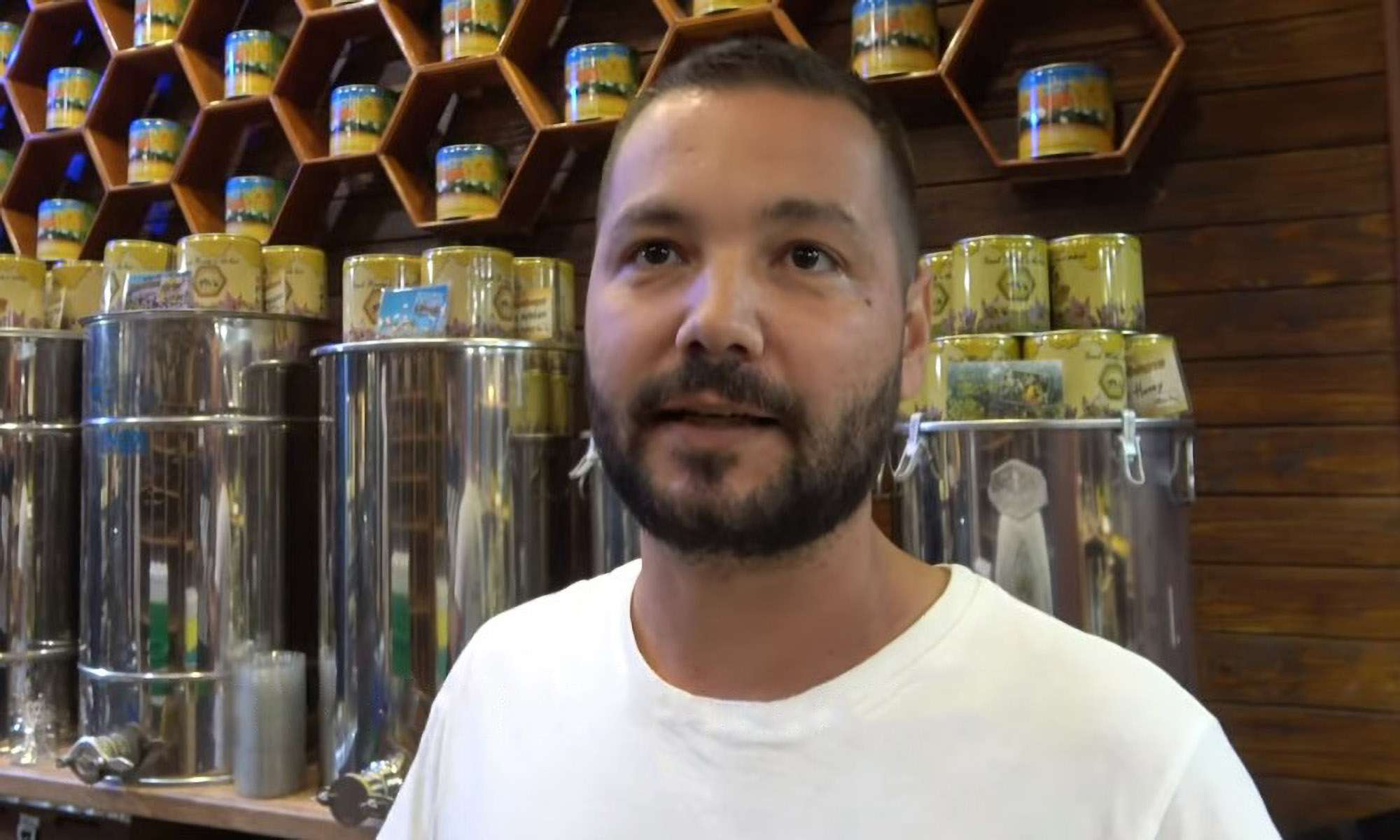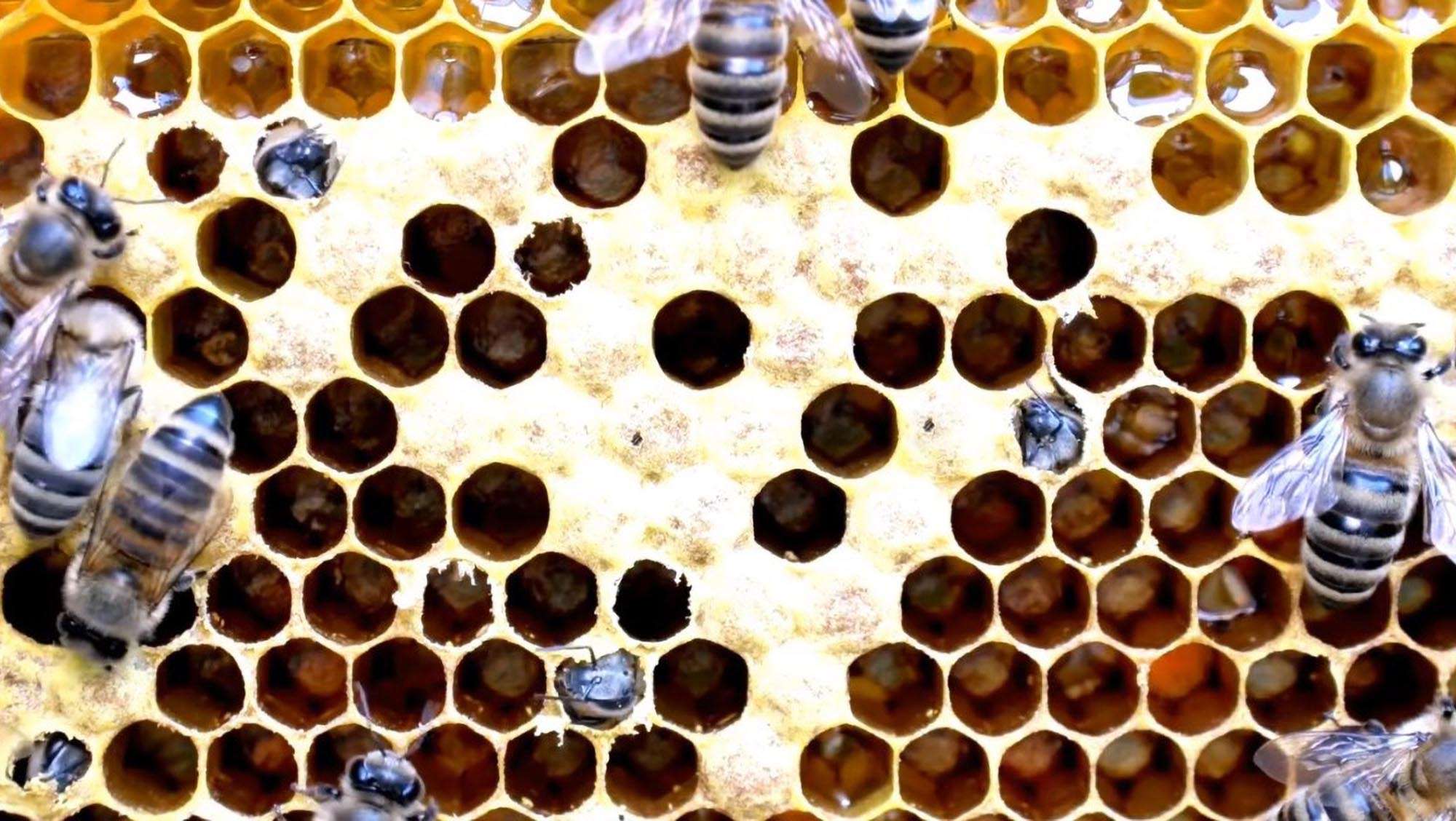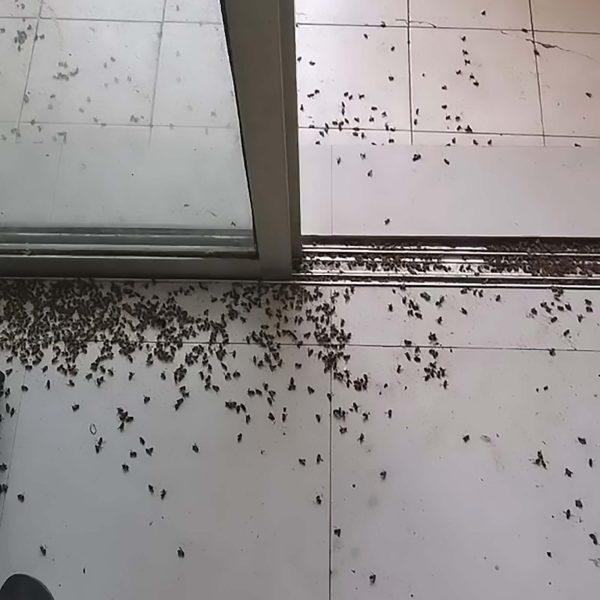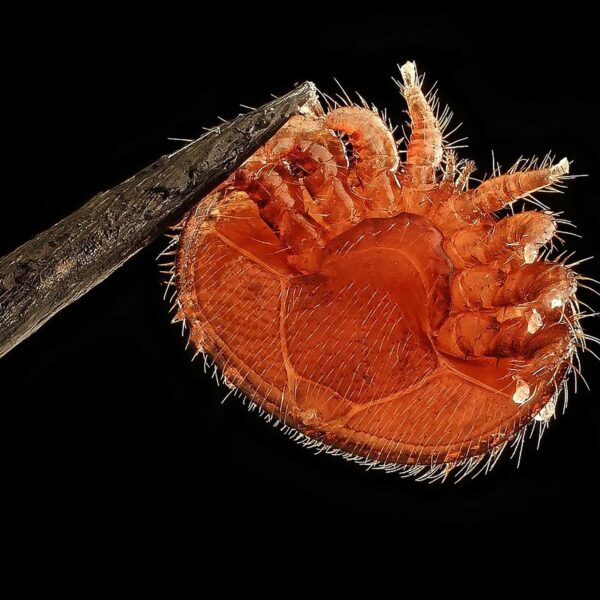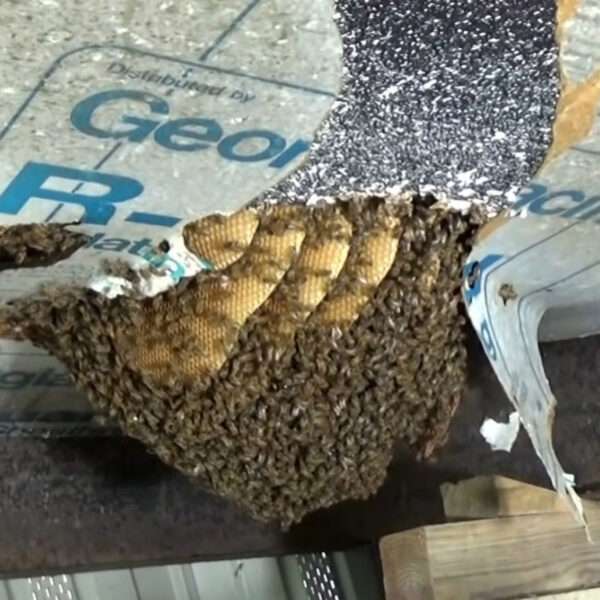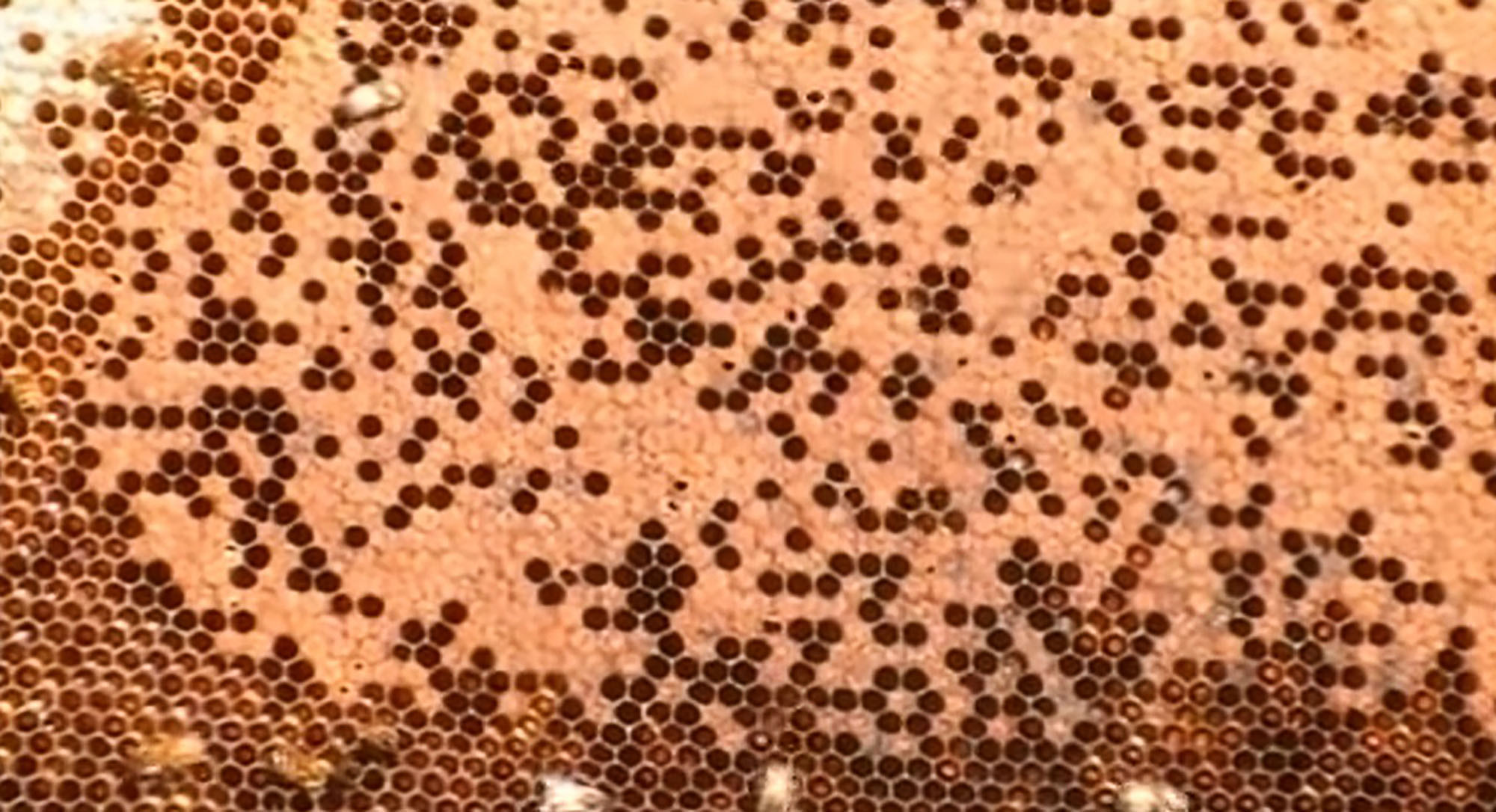A Greek beekeeper has revealed a simple trick that helps consumers determine the quality of honey.
Dimitris Papapostolou from the coastal town of Loutra Edipsou on Evia Island encouraged anyone unsure whether the honey they just bought was pure should carry out a quick check.
Dimitris said: “When you put a spoon of honey into a glass of warm water, you’ll see that the honey is clear. It will stay at the bottom, it won’t dissolve.”
The owner of the Melissospito Apiary added: “However, if it contained any other substances, it would dissolve and the water would look cloudy.”
Speaking to the Greek Reporter news platform, Dimitris warned against purchasing honey laced with colourants or potentially harmful substances.
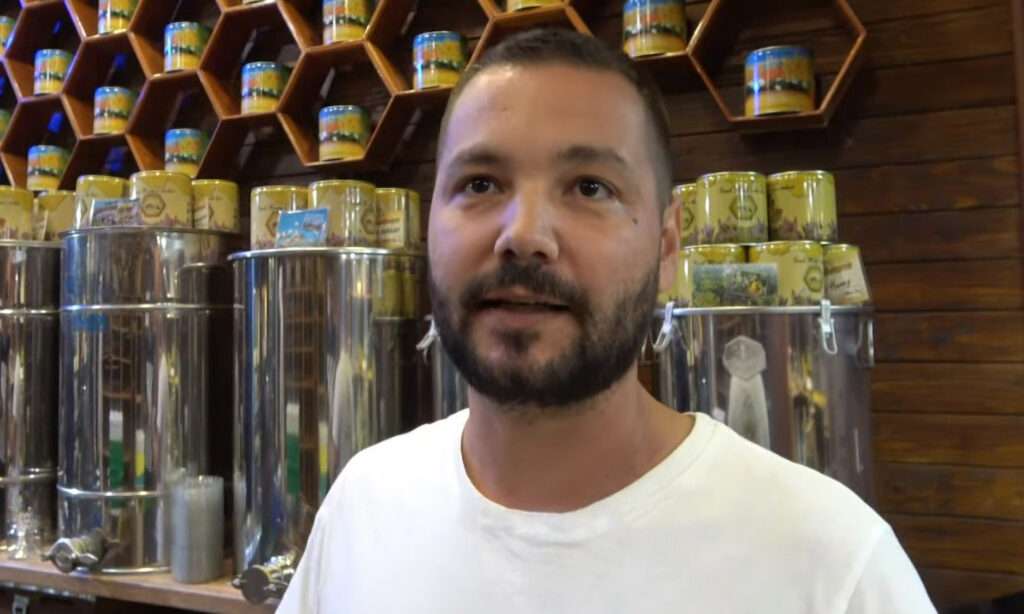
The experienced apiarist explained: “The best thing a consumer can do is buy honey directly from a producer.”
Earlier this year, an investigation by the European Commission’s anti-fraud watchdogs OLAF and JRC suggested that almost one in two imported products labelled as pure honey could be laced with syrups.
Dimitris comes from a family of beekeepers. It all started with his great-grandfather.
However, the history of apiculture in Greece even dates back to Ancient Greece. The remains of beehives discovered by researchers were found to be dating back to the 6th century BC.
Honey – which has been used as a sweetener by the people of Greece for thousands of years – is also mentioned in Greek mythology.
In 2021, the country’s honey farm managers were in charge of 2.18 million hives. This figure helped the country to claim second place among the EU-27 in a ranking topped by Spain.
Dimitris claimed: “All countries produce good natural honey but they are inferior to Greek honey.”
The Melissospito chief said: “Greek honey is the best because of the climate we have here in Greece and because of the wide variety of trees – pine trees, firs, citrus trees.”
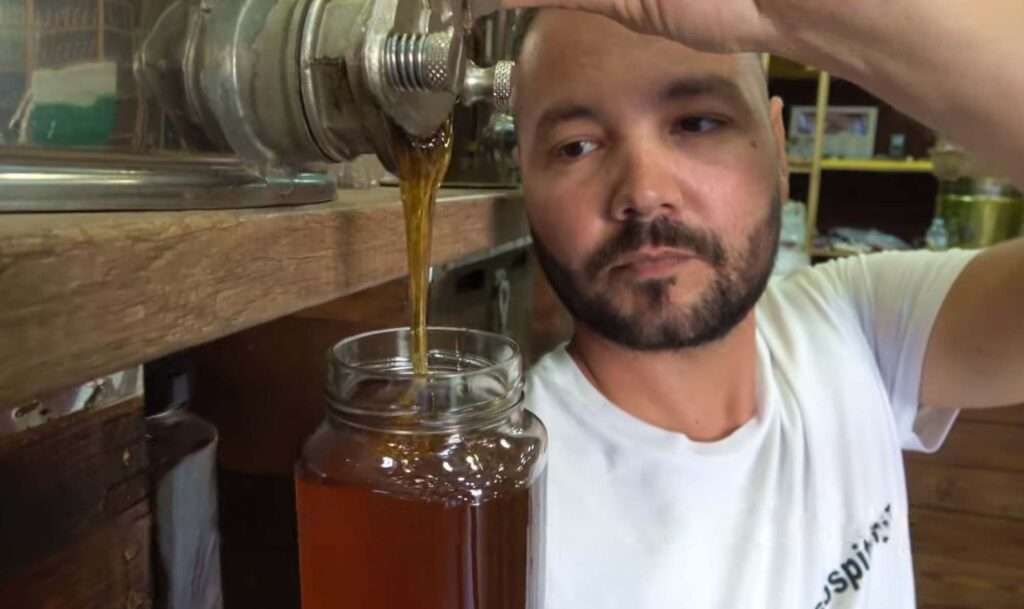
Dimitris proudly added: “A mouthful of honey is like a full meal. It’s excellent, very nutritious. It should never be mixed with alien substances.”
In his downtown store as well as online, Dimitris offers typical Greek honey varieties such as pine, thyme and fir as well as royal jelly and liquid propolis extract.
But he revealed: “The most popular type of Greek honey is sourwood honey.”
Speaking to the Greek Reporter, he also emphasised the essential role pollinators were playing. He said: “Without them, life wouldn’t exist on our planet.”

